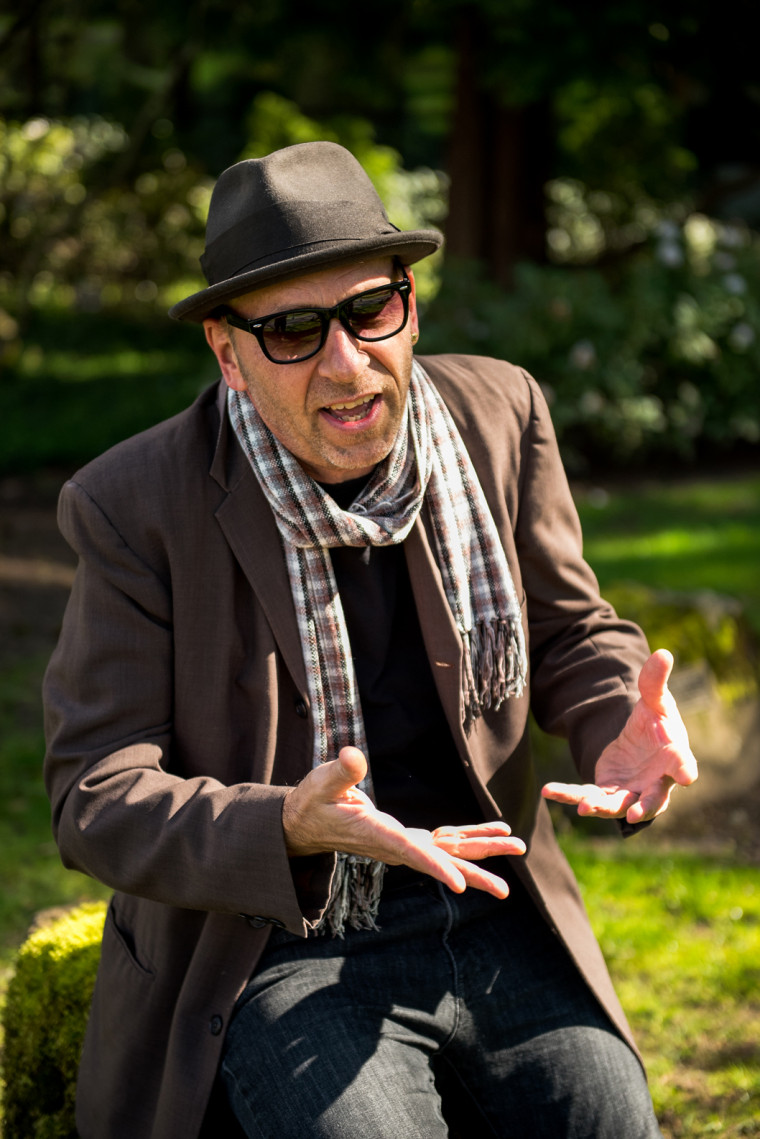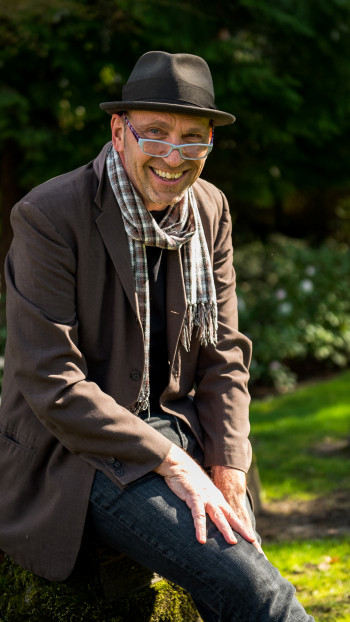Štĕpán Šimek
No matter where our graduates go, their theatre training and their education serve them well. Their skills of collaboration, creativity, reliability, and determination that “the show must go on” make them exceptional human beings.

Title
Department(s)
What three words would you use to describe Lewis & Clark?
What brought you to L&C?
After I received my MFA in directing from the University of Washington, I directed professional theatre in various cities around the country. It was a pretty peripatetic existence, and since I already had two children, I wanted to settle down a bit. I had a wonderful theatre professor when I was an undergraduate student in San Francisco, and in a sense, I always wanted to become him. When a sabbatical replacement position opened at Reed College, I jumped on it and taught at Reed for two years. I fell in love with teaching, and was fortunate enough to be invited by Associate Professor Stephen Weeks to apply for a position at L&C. And so I started teaching here in 2001.
What makes you passionate about theatre?
The theatre allows us to create worlds, to live lives, and to expose ourselves to experiences, issues, ideas, and so on that are often too hot to touch in real life. It allows us to posit a mirror to real life and, in that mirror, to see ourselves as we REALLY are, rather than as we THINK we are. In that, the theatre is a real truth-teller, and I like the truth. Theatre also exists only in the immediate “here and now.” That sense of “hereness and nowness is extremely exciting, and that element really only exists in the theatre. Furthermore, the theatre creates a real communion between the makers and the consumers of it. I love that sense of communion, the sense of sharing the space, the ideas, the words, the emotions, etc… I’m passionate about the sense of collaboration that happens in the theatre. You’re never alone, and that gives you a sense of responsibility for your fellow human beings. Others rely on you and you rely on others—that reciprocity of responsibility is exciting and teaches us how to live our lives. Finally, the theatre is essentially about what makes us human beings—with everything on it, warts and all. In that, it is a brave space, and I’m excited about that bravery.
How does being a working actor/director in Portland enhance your teaching at Lewis & Clark?
I believe that it is supremely important to remain active in the professional world while teaching. There is always a bit of a danger to stay safely and cozily isolated in the world of academia, especially in the performing arts. Even after several decades of working in the theatre, I feel the need to learn new things, experience the challenges of the professional theatre world, experiment with various forms of theatre, and continue learning by doing. As a teacher, I need to bring real-life, professional experience into the classroom to not only justify my own expectations of professionalism from the students, but also to challenge myself to raise the bar of my own teaching and mentoring. Additionally, whenever I do any professional work in town, I strive to involve our current and former students in the work. Danse Macabre is a perfect example of that. The lighting design was created by Trevor Sargent BA ’15, the gigantic puppet and mask was designed and created by Robert Amico BA ’14, and the stage manager for the show is current student Mary Alice Perkins BA ’22. My work in the professional theatre is really the continuation and the extension of what I do in the classroom with my students.
What do you enjoy most about working with students?
I always enjoy seeing the “bulbs” light up when the students realize something about the material we’re working on. In my performance courses, I tremendously enjoy the sense of accomplishment that the students feel after presenting their creative work—an acting scene, a directing scene, a project they’ve been working on all semester long, or anything that showcases their creativity and hard work. I enjoy challenging the students to always take one more step and seeing them take up that challenge. I enjoy the collaborative nature of everything that we do, the sense of being in it together, and the level of responsibility I see the students taking for their own work, and the level of responsibility they take in relation to their classmates. I enjoy the students’ enthusiasm for their work, their infectious energy, and the vibes they send my way—I enjoy that they continue challenging me and keeping me on my toes and, through that, keeping me young.
How does Lewis & Clark prepare students for a career, advanced studies, and/or a life enriched by the performing arts?
No matter where our graduates go, their theatre training and their education serve them well. Their skills of collaboration, creativity, reliability, and determination that “the show must go on” make them exceptional human beings. We pride ourselves on the fact that we are educating artist scholars, people who are both creatively and intellectually ready to address any issues that they may encounter. Our classes are quite rigorous both in terms of the actual training and the intellectual and scholarly examination of issues. Theatre may be the most interdisciplinary of all majors, and essentially, we’re exploring the question of what it means to be a human being. Since we approach that question from every angle imaginable, and since the theatre allows its practitioners to literally live multiple lives on stage, our students enter the world with a profound understanding of what it means to be a human being.
What sets the L&C theatre department apart from other small liberal arts colleges?
All the faculty in the department are working theatre artists. The faculty is an integral part of the professional theatre world in Portland, but at the same time, we are fully committed to our work with students. This allows us to expose our students to the professional world of the theatre, to invite them to collaborate with us on our professional projects, and to involve other working professionals in the work with our students. I’d say that our main stage productions are of the highest professional quality. We demand professional standards from our students, and our productions are often among the best theatre you can see in Portland. Because of that, our department is highly regarded among the local theatre makers, and our students are in very high demand after they graduate. So, I’d say that what makes us special involves the conservatory-caliber education students receive, the demand for professionalism, the close connection to the theatre community in Portland, and the absolute commitment of the faculty to the students.
- Professor Štĕpán Šimekdescribes how the theatre department prepares students for life after L&C.

More Admissions Stories
Admissions is located in Frank Manor House on the Undergraduate Campus.
MSC: 32
email admissions@lclark.edu
voice 503-768-7040
fax 503-768-7055
Vice President of Admissions and Financial Aid
Eric Staab
Admissions
Lewis & Clark
615 S. Palatine Hill Road MSC 32
Portland OR 97219

